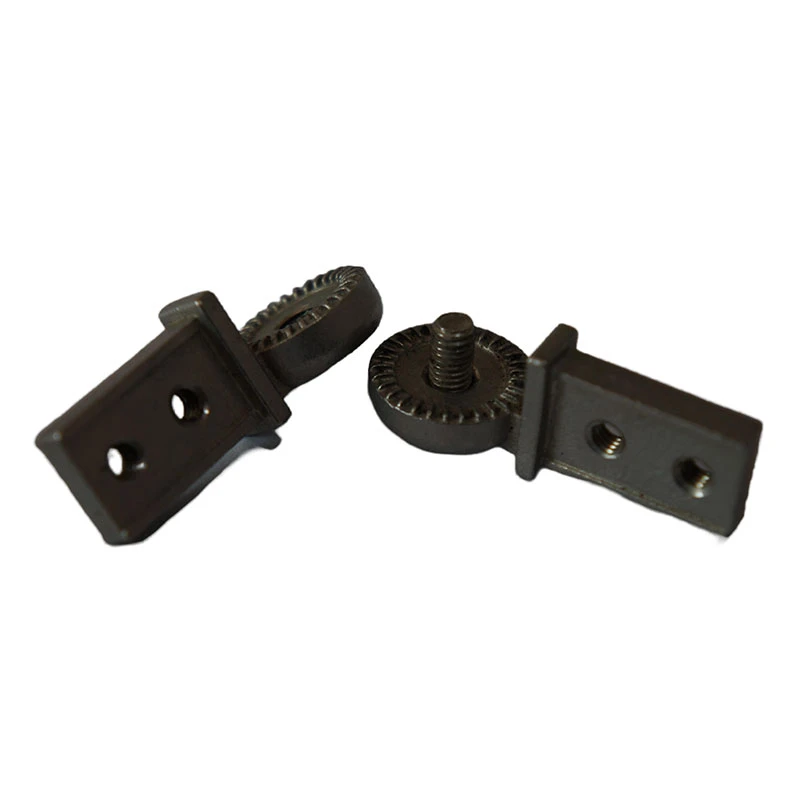machining
Understanding Machining The Backbone of Manufacturing
Machining is a critical process in the field of manufacturing, encompassing a wide variety of techniques used to shape materials, primarily metals and plastics. This article explores the fundamentals of machining, its various methods, and its significance in modern industries.
At its core, machining involves the removal of material from a workpiece to achieve desired geometries and surface finishes. This subtraction of material can transform raw stock into precise, complex components that meet strict specifications. The history of machining can be traced back to ancient civilizations, but it has evolved dramatically with advances in technology and engineering principles.
The primary machining processes include turning, milling, drilling, grinding, and electrical discharge machining (EDM). Each method serves specific purposes and is chosen based on the product requirements.
Turning is a process where a workpiece rotates against a cutting tool, which removes material to create cylindrical shapes. This process is often conducted on a lathe machine and is ideal for producing items like shafts, wheels, and pulleys. The precision of turning can achieve tolerances as tight as a few microns, making it a popular choice in industries demanding high precision.
Milling, on the other hand, involves a rotating cutter that moves across the surface of the material, removing material to create flat, contoured, or complex shapes. Milling machines can be horizontal or vertical, and a variety of cutter types can be utilized. This flexibility allows for a wide range of applications, from simple brackets to intricate components used in the aerospace sector.
Drilling is one of the most common machining operations, primarily used to create holes in various materials. It can be combined with other operations, such as reaming to improve hole accuracy or tapping to add threads. The importance of drilling in manufacturing cannot be overstated, as it is essential in fabricating support structures and functional parts across countless industries.
machining

Grinding is a finishing process that utilizes an abrasive wheel to remove material, achieving high levels of accuracy and surface smoothness. This method is often employed for parts that require tight tolerances and superior surface finishes, such as gears and precision instruments. Grinding is particularly useful in the final stages of machining, ensuring that components meet exact specifications.
EDM is a specialized machining process that uses electrical discharges to erode material. It is particularly effective for hard metals and intricate shapes that are difficult for conventional cutting tools. EDM has gained prominence in industries such as tool and die manufacturing, where precision and complexity are paramount.
The significance of machining in today's world cannot be understated. As industries continue to evolve, the demand for precision-engineered components has surged. Machining provides the ability to produce parts that meet strict tolerances and performance standards necessary for various applications, including automotive, aerospace, medical devices, and electronics.
Moreover, advancements in machining technology, such as computer numerical control (CNC), have revolutionized the field. CNC machining uses computer software to control machine tools, allowing for unmatched precision, consistency, and the ability to produce complex designs. Automation and robotics have further enhanced the efficiency of machining operations, reducing production times and increasing output while maintaining quality.
Sustainability is another important aspect in modern machining practices. Manufacturers are increasingly adopting eco-friendly techniques, such as minimizing waste through optimized cutting paths and recycling materials. Innovations in tooling materials and coatings also improve the lifespan of tools, reducing the frequency of replacements and promoting sustainability in manufacturing processes.
In conclusion, machining is a foundational process in manufacturing that encompasses various techniques essential for producing high-quality, precise components. As technology continues to advance, the possibilities within the realm of machining are expanding, catering to a wide array of industries and needs. Its impact is profound, shaping not just the products we use daily, but also the industries that drive our economy forward. The continual evolution of machining methods promises exciting developments in the manufacturing landscape, ensuring that it remains a vital area for research, innovation, and application.
-
Precision Sheet Metal Stamping Manufacturer | Fast & ReliableNewsAug.01,2025
-
OEM Sand Cast Pump Valve Fittings - Baoding Hairun Machinery And Equipment Trading Co., Ltd.NewsAug.01,2025
-
Custom OEM Impellers | High Efficiency & PrecisionNewsAug.01,2025
-
OEM Sand Cast Pump Valve Fittings - Baoding Hairun Machinery | Customization, Quality AssuranceNewsAug.01,2025
-
OEM Sand Cast Pump Valve Fittings - Baoding Hairun Machinery And Equipment Trading Co., Ltd.NewsAug.01,2025
-
OEM Sand Cast Pump Valve Fittings - Baoding Hairun Machinery And Equipment Trading Co., Ltd.NewsJul.31,2025















